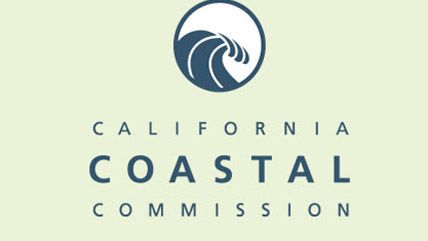Abusive Coastal Agency Demands Even More Power
Can a quasi-judicial agency impose fines without first taking property owners to court?

SACRAMENTO — The title of the Coastal Society's 1998 conference, which featured a speech by the father of the California Coastal Commission, Peter Douglas, is relevant to a debate that may soon come back to the Capitol. At the "Minding the Coast: It's Everyone's Business" event, Douglas detailed his vision for coastal protection.
Douglas talked about sitting at the beach on moonlit nights and being "humbled and overwhelmed by the vastness and beauty of place and moment." That led him to help draft a 1972 voter initiative (and the subsequent 1976 Coastal Act) and to serve as the executive director of the commission that was formed by those efforts.
The commission is loved by environmentalists and loathed by many property owners as Californians still wrestle with the same question: What does it mean for everyone to mind the coast? Legislators will weigh in this year if they revisit a bill by San Diego Democrat Toni Atkins that would give the commission vastly expanded powers – namely, the right to impose fines without first taking property owners to court.
In his 1998 speech, still posted on the commission's website, Douglas championed rules that came "at some not insignificant cost to individual rights and aspirations." He criticized "private land rights crusaders" and justices who limit government ecological efforts. Douglas died in 2012, but his anti-property-rights vision still drives the commission. So one might reasonably be concerned at how the commission, which is currently stopping one project because of its concern about harming plankton, might wield its new hammer.
The commission regulates "development" along the coast, but the coastal act defines development in a broad way that includes signage, fireworks displays and the replacement of fencing. It imposes cease-and-desist orders and uses the permit-approval process to gain concessions – public easements and design changes – from owners. It's a broad charge.
Last year, the Atkins bill (AB 976) was controversial enough even among some environmentally minded Democrats that it was rejected in the Assembly. But as Atkins ascends to the Assembly speakership, it's likely that this legislative priority will rise again.
Is it needed? The vast majority of the commission's complaints against homeowners already are resolved before going to court. If the commission still meets resistance, it petitions the state attorney general for legal action.
If the Atkins bill passes, the commission can decide on its own to begin assessing daily fines. The property owners can attend a public hearing before commissioners, but it's not a neutral proceeding with witnesses and due process. The burden of proof would shift from the agency to the individual property owner.
Not many owners could risk the bank account by challenging the agency. Some critics say the bill would provide an incentive for the commission to target picayune issues because the more fines it imposes, the more money that fills up an environmental-restoration fund.
The commission already is accused of being absurdly nitpicky and lacking in oversight. For instance, it denied two Encinitas homeowners, Barbara Lynch and Thomas Frick, the right to rebuild a beach-access stairway destroyed by storms and imposed numerous conditions to rebuild the crumbling sea wall. The commission is now appealing a lower-court ruling in their favor. It's always costly and exhausting to fight a government agency.
The commission says it just wants to have the same power used by many other agencies. "A lot of agencies that have that power regulate businesses and have much more limited activities," said Jennifer Thompson, an attorney with the Pacific Legal Foundation, the nonprofit property-rights group that is defending Lynch and Frick. "This will give the commission so much more power over people's homes."
So Californians might want to ask whether giving this already powerful agency this kind of unchecked power is the most appropriate way for "everyone" to mind the California coastline.


Show Comments (13)